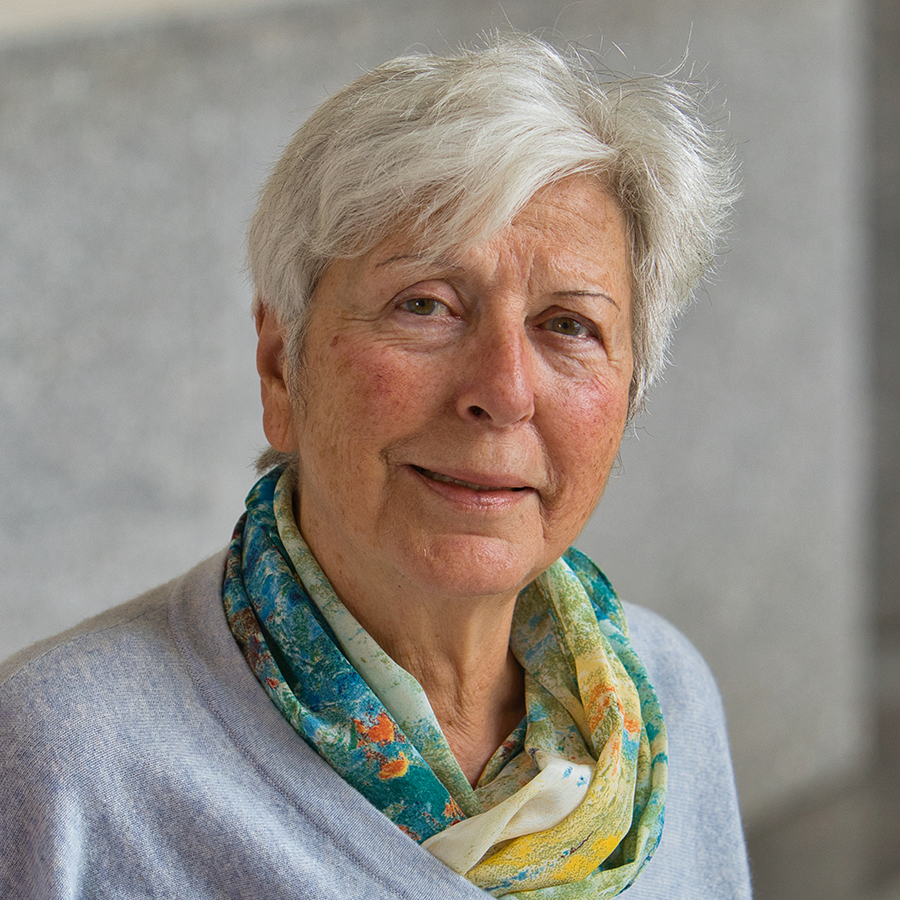
Marina Ottaway is a Middle East Fellow at the Woodrow Wilson Center and a long-time analyst of political transformations in Africa, the Balkans and the Middle East. On Oct. 13, she will give the 2025 J. Jobe and Marguerite Jacqmin Soffa Lecture at the Pyle Center. Comments will be made by professor Flavia Piovesan, professor of constitutional law and human rights at the Catholic University of São Paulo, and the lecture will be moderated by retired Chief Justice of the Wisconsin Supreme Court Ann Walsh Bradley.
Ottaway joined the Wilson Center after 14 years at the Carnegie Endowment for International Peace, during which she played a central role in launching the Middle East Program. Prior to that, she carried out research in Africa and in the Middle East and taught at Georgetown University, the Johns Hopkins School for Advanced International Studies, the American University in Cairo, the University of the Witwatersrand in South Africa, the University of Zambia and Addis Ababa University. Her publications include nine authored books and six edited ones.
In the below Q&A, Ottaway discusses her lecture, “The Resistible Threat of Semiauthoritarianism,” her career studying political transitions and hybrid regimes, and more.
Question: Your Soffa Lecture is titled “The Resistible Threat of Semiauthoritarianism.” For those unfamiliar with that term, what does “semiauthoritarianism” mean — and what makes it a resistible threat?
Answer: The term semi-authoritarianism, which I first used in a book “Democracy Challenged: the Rise of Semi-authoritarianism” (Carnegie 2003) denotes political systems that superficially follow the rules of democracy, such as holding elections regularly and having separate branches of power, but do not respect the most fundamental principles and values of democracy. I first used the term in relation to regimes around the world that, under pressure from the United States’ efforts to promote democracy, learned to follow the formal steps without embracing the values. I did not think at the time that the term would ever be applied to the United States.
Q: You’ve spent your career studying political transitions and hybrid regimes in regions from the Balkans to Africa and the Middle East. What encouraged your interest in those areas. What have these experiences taught you about the conditions that allow democracy to take root — or falter?
A: I started my academic career when the decolonization process was unfolding rapidly. Both in Africa and the Middle East, my main areas of focus, leaders were struggling to set up new systems of government, and I became very interested in the process. Many of those post-colonial leaders were trying to set up socialist regimes, but after the collapse of the Soviet Union, the efforts switched to democracy, often with U.S. support, and I switched my attention to that issue. In studying many countries purportedly setting up democratic systems, I became aware of the fact that, in reality, some had set up semi-authoritarian regimes.
Q: Much of your work highlights the limits of Western assumptions about democracy promotion. How should we rethink the role of outside actors — governments, NGOs or international organizations — in supporting democracy abroad?
A: The role of outside actors in promoting democracy is limited. Preaching democracy does not make it happen. I have come to the conclusion, after analyzing many democracy-promotion programs, that the most successful are those that help countries perform technical tasks, such as setting up polling stations, voter registration mechanisms, etc. But such programs only work in countries where the government has decided that it wants free and fair elections.
Q: Legal systems often become battlegrounds in semiauthoritarian regimes — used either to entrench power or to resist it. What do you see as the role of law, lawyers and legal education in strengthening democratic resilience?
A: Rule of law is inseparable from democracy, of course, and legal institutions have an important part to play. But we should not assume that legal institutions, courts, judges, lawyers alone can defend democracy. There is a role for all citizens.
Q: The Soffa Lecture celebrates women shaping global discourse on human rights and democracy. Looking back on your own career, what have been some defining moments or influences that shaped your perspective as a scholar and practitioner?
A: I have worked most of my life in countries where women are still mostly barred from participating in the domestic or global discourse on human rights and democracy, but I am struck by the determination of many of them to change the situation, to be heard. I am equally struck by the fact that in some countries, Egypt for example, women played a much more important role a hundred year ago. It is a stark reminder that women need to continue fighting for their rights, because reversals are always possible.
Q: Finally, what do you hope audiences take away from your Soffa Lecture? What conversation do you want it to spark here at Wisconsin and beyond?
A: My main message is that democracy and human rights are in danger for all, not just for women and minorities, and everybody needs to ask themselves what they can do. This is an important debate for all of us.
Submitted by Law School News on October 9, 2025
This article appears in the categories: Features